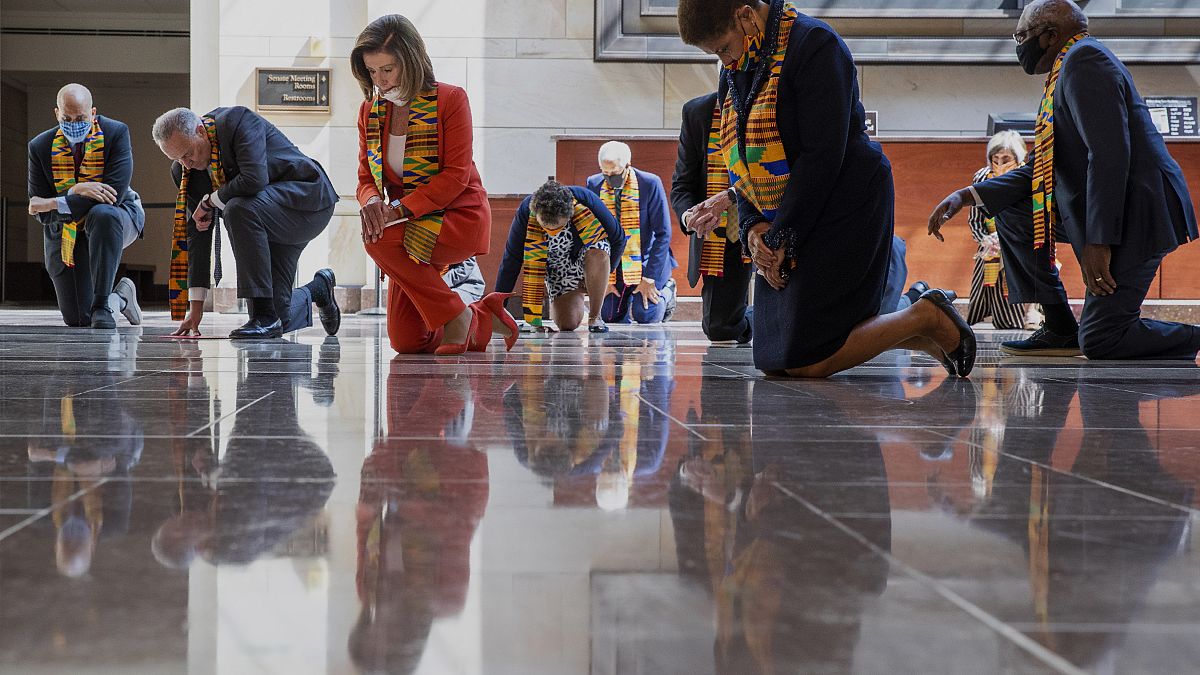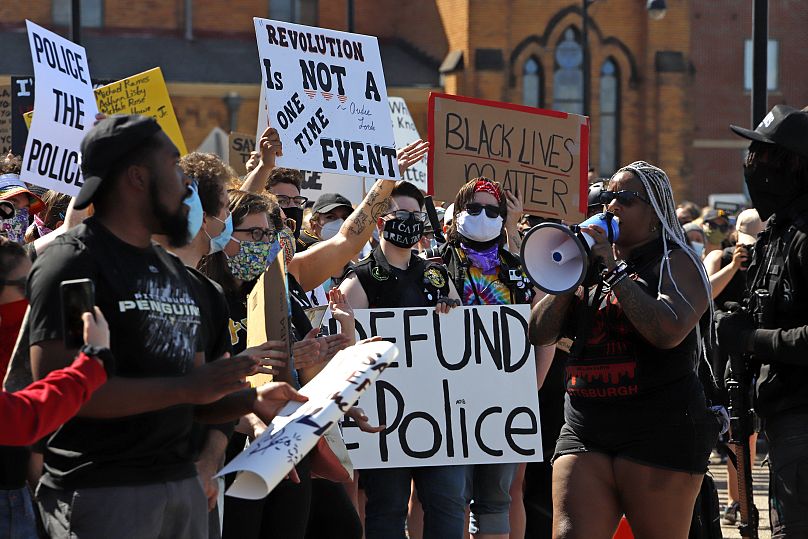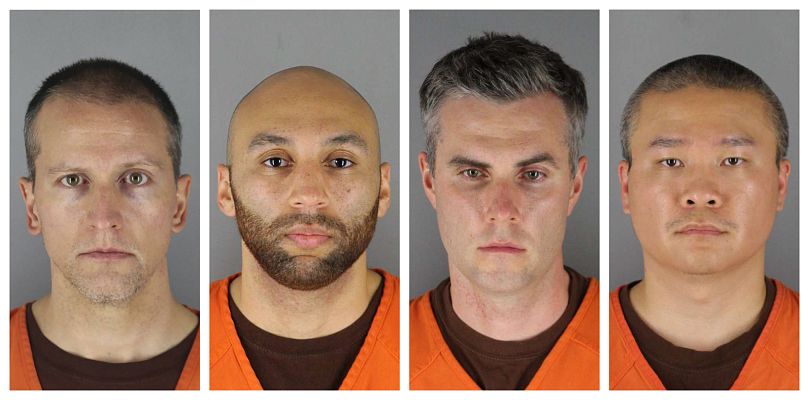The legislation, if adopted, would ban police chokeholds, reduce legal protections for officers and establish a national database of excessive-force incidents.
US Democrats have proposed a sweeping overhaul of the police after the death of George Floyd ignited weeks of protests.
The legislation, if adopted, would ban police chokeholds — a restraining move that severely limits the amount of air that can pass through a victim's neck —, reduce legal protections for officers and establish a national database of excessive-force incidents.
“We cannot settle for anything less than transformative structural change,” said House Speaker Nancy Pelosi.
However, it is unclear what chance the Justice in Policing Act of 2020 has of getting support from the Republican Party.
It comes after a majority of the members of the Minneapolis City Council said they support disbanding the city’s police department, an aggressive stance that comes just as the state launched a civil rights investigation after George Floyd’s death.
Nine of the council’s 12 members appeared with activists at a rally in a city park on Sunday afternoon and vowed to end policing as the city currently knows it.
Councilmember Jeremiah Ellison promised that the council would "dismantle" the department.
Lisa Bender, the council president, said that "it is clear that our system of policing is not keeping our communities safe", adding that efforts at an incremental reform "have failed".
George Floyd, a 46-year-old black-American died in Minneapolis on May 25 after a white officer, Derek Chauvin, pressed his knee into his neck, ignoring Floyd's cries of distress.
His death sparked protests — some violent, many peaceful — that spread nationwide and globally.
Community activists have criticised the Minneapolis department for years for what they say is a racist and brutal culture that resists change.
The state of Minnesota launched a civil rights investigation of the department last week, and the first concrete changes came Friday in a stipulated agreement in which the city agreed to ban chokeholds and neck restraints.
Disbanding an entire department has happened before in the US.
In 2012, with crime rampant in Camden, New Jersey, the city disbanded its police department and replaced it with a new force that covered Camden County.
Compton, California, took the same step in 2000, shifting its policing to Los Angeles County.
However, the move to defund or abolish the Minneapolis department is far from assured, with the civil rights investigation likely to unfold over the next several months.
On Saturday, activists for defunding the department staged a protest outside Mayor Jacob Frey’s home. Frey came out to talk with them but eventually left to booing after expressing disagreement over "the full abolition of the police department".
Chauvin to make first court appearance on Monday
The 44-year-old ex-officer is charged with unintentional second-degree murder, third-degree murder and second-degree manslaughter.
He was also fired after the video of George Floyd's death came out.
A conviction of second-degree murder carries a maximum penalty of 40 years in prison; third-degree murder carries up to 25 years; and manslaughter up to 10.
The other three ex-police officers, Thomas Lane, J. Kueng and Tou Thao, who were all fired, are charged with aiding and abetting both second-degree murder and second-degree manslaughter.
Lane held Floyd’s legs and Kueng held his back while Chauvin placed his knee on Floyd’s head and neck. That’s when Floyd repeatedly said "I can’t breathe and "please." At one point, Floyd said, "I’m about to die." Nevertheless, Chauvin, Lane and Kueng didn’t move. A fourth officer, Tou Thao, continued standing nearby keeping onlookers back.
Potential sentences for them depend on a conviction of Chauvin. If he’s convicted of second-degree murder, they could face the same 40-year maximum.
"This is a lesson for every cop in America: If you see something that is wrong, you need to step in," said Joseph Giacalone, a former New York police sergeant.
"There are a lot of grey areas in policing, but this was crystal clear. You’re better off being ostracised by the group than going to prison for murder."
Andrew Scott, a former Boca Raton, Florida, police chief, said the ex-officers "are suffering the effects of an organisational culture that doesn’t allow or reward that behaviour. The fraternity of law enforcement is a tight fraternity and fraternities have a group think."
Attorneys for the two rookies Thomas Lane and J. Alexander Kueng emphasised their place in the police hierarchy at their initial court appearance last week.
They noted both were on just their fourth day as full-fledged cops at the time of Floyd’s death, while Chauvin was an authority figure as a designated training officer for new officers.


